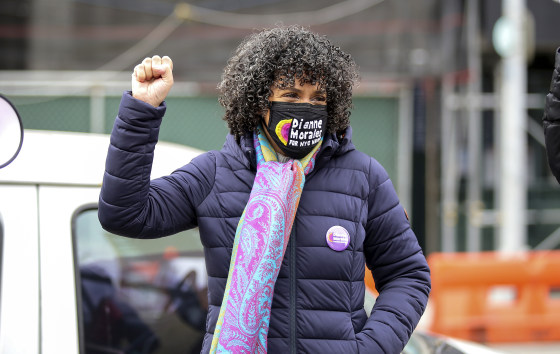New York City mayoral candidate Dianne Morales visited the nation’s largest cooperative housing development in the borough of the Bronx on the anniversary of George Floyd’s death Tuesday, embarking on the final stretch of a contentious primary race.
The first-time candidate said Floyd’s killing at the hands of police made it possible for her “to be uncompromising” about her stances on issues of policing and public safety.
“We haven't really changed the systems that made it possible for George Floyd to be murdered,” Morales told NBC News. “It’s so important, because of this moment in time, for us to really be committed to making the political changes and the moral changes that we need to make.”
Morales is the first Afro Latina candidate to run for New York City mayor. If she wins the June 22 Democratic primary, Morales could become the first woman and first Hispanic elected mayor.
“When people start to talk to me, they see something of themselves in me,” she said after joining a dance class in a Bronx park and busting some salsa moves to Sonora Carruseles’ hit “Micaela."
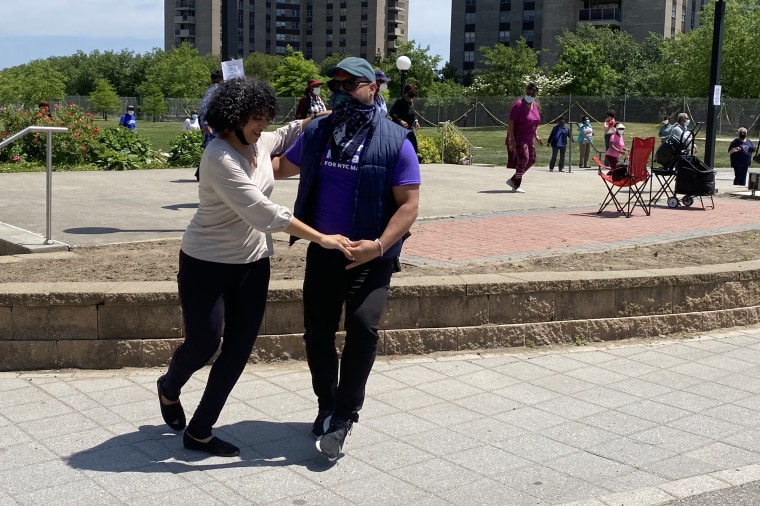
The former nonprofit executive left her job in 2019 to run for mayor. Since launching her campaign, she has pitched herself as a candidate who brings a new progressive vision that seeks to reform gubernatorial priorities in a way that delivers justice for the city’s most vulnerable populations.
Morales was most recently the CEO of Phipps Neighborhoods, a Bronx-based nonprofit that provides affordable housing and social services to low-income families. In that role, she sat on Mayor Bill de Blasio’s Community School Advisory Board and on the board of the Human Services Council. She was also a founding board member of Jumpstart, a national early education organization.
She says that if elected mayor, she hopes to leverage her experience in the nonprofit sector to deliver community-oriented solutions following the Covid-19 pandemic and a nationwide racial reckoning.
“I've seen the city ignore the solutions that we were advocating for. And it's time we have somebody in leadership who actually isn't going to ignore us,” she said.
A day on the campaign trail
A Puerto Rican woman was playing salsa music CDs on a bright red radio while sitting on a beach chair outside one of Co-Op City’s shopping centers when Morales started canvassing the Bronx neighborhood Tuesday. Across from her, a man who had just finished an overnight shift as a security guard, said “it’s time for a woman to be mayor” after he saw Morales. He then opened up about his mother’s Covid-19 death and his concerns over public safety.
“There's so much trauma from Covid that people are anxious to just kind of move on.” But it is not just the Covid-19 pandemic, Morales said. “It’s the pandemic of poverty, the pandemic of the criminalization of Black and brown bodies, the pandemic of classism and racism and sexism. People have felt that in a profound way.”
The most recurrent issue concerning the dozens of residents Morales approached at the Bronx housing development was the rise in violent crimes amid the pandemic. While overall crime went down last year from 2019, the city saw an uptick in homicides with at least 462 murders reported, making it the deadliest year in nearly a decade.
Many of her 12 Democratic opponents have distanced themselves from calls to defund the police, but not Morales. She doubled down on her stance, while reminding potential voters that New York City has one of the nation’s largest police departments.
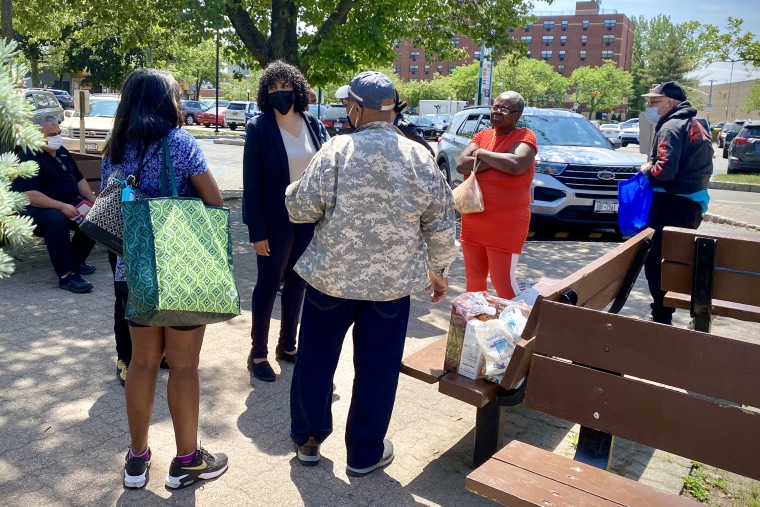
“The NYPD is one of the most well-resourced police departments in the country and that didn’t save us during the pandemic,” she told a 63-year-old Puerto Rican man who was worried about the rise in crimes. Morales then added that people will feel unsafe until conditions, such as food insecurity and unreliable housing are improved.
Morales has proposed reallocating $3 billion of the NYPD’s overall budget of about $6 billion to create a separate government entity that can respond to certain crises with trauma-informed resources, among other efforts that would address the root causes of violence.
Two older Black women who spoke to Morales during the canvassing event expressed concerns about how increasing the city’s police presence could exacerbate issues of racial profiling.
Morales opened up about how her 22-year-old son has been racially profiled since he was a boy. “He would come home and talk about those experiences, which were terrifying for me,” the single mother of two young adult children said.
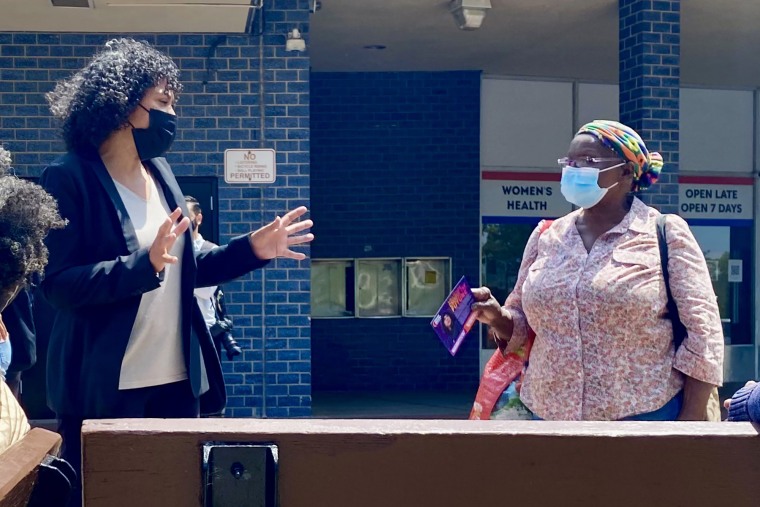
Morales remembers how on May 29, 2020, she watched police pepper spray her children while they protested police brutality following Floyd’s killing. Morales said, “I was horrified. I couldn't protect them. And then a little while later, my son was assaulted by a police officer and we were marching together peacefully.”
“It has made me painfully aware of the way the system dehumanizes us,” she said, adding that as mayor, she would decouple policing efforts from cooperating with immigration authorities to “regain the trust of the immigrant community.”
Standing out in a crowded field
Morales believes her combination of personal and professional experiences can make her stand out as a candidate in a crowded race. This includes front-runners Brooklyn Borough President Eric Adams and Andrew Yang, who unsuccessfully ran for president last year, as well as more moderate progressives, such as civil rights lawyer Maya Wiley and New York City Comptroller Scott Stringer, whose campaign was rocked by a sexual harassment allegation.
Morales, 53, was born and raised in a Puerto Rican household in Brooklyn. She lived in public housing and shared a bedroom with her grandmother, known as Doña Rosa, until she became a first-generation college student at Stony Brook University.
Her first couple of jobs out of college — as a foster care caseworker and as a special education teacher at the same public school she attended as a kindergartener — gave Morales her first glimpses into instances in which government doesn’t work for the people, she said. She then went on to earn two master’s degrees, one from Harvard University and another from Columbia University.
Between 2002 and 2004, she worked as chief of operations at the Department of Education’s Office of Youth Development under then-Mayor Mike Bloomberg. After that, she sued the city’s public school system to get the resources her daughter needed to learn effectively, according to her campaign website.
Morales prides herself on being a candidate with life experiences similar to that of fellow New Yorkers, an approach that seems to have kept her candidacy afloat even in the midst of controversies.
Campaign setbacks
On Wednesday, Morales announced the exit of three campaign staffers after “taking the necessary steps to address harm caused by certain staff.” One senior staff member and two other staffers departed from the campaign, she said in a statement, without specifying if they resigned or were fired, or detailing any more about the situation. “The steps we are taking on our campaign are also the steps a Morales Administration will take.”
With 4 weeks left in the race, remaining campaign staffers are looking to unionize and enter negotiations over pay and workplace conditions. In a letter making the announcement, staffers said many of them experienced "racial aggressions, sexual harassment, exploitation, and manipulation — grave violations that contradict the very equity our campaign promotes."
On Thursday evening, Morales said in a statement that she expressed support to staff members looking to unionize and announced the removal of two additional staffers following "allegations related to racially-based biases and sexual harassment claims."
Staffers who are unionizing responded in a statement saying that 4 of their elected union leaders, 3 of whom are Black women and one who's a queer white woman, were terminated "without reason." They also announced that union members "will begin a work stoppage as a collective action in solidarity with our members who deserve to be treated with respect."
Last week, The City first reported that Morales participated in a $300 bribery payment of a city environmental protection inspector “who offered to make her $12,500 water bill go away.” A review committee from the Department of Education, where she worked at the time, later recommended terminating her employment following an investigation. However, Morales said she left the job voluntarily for other personal reasons.
The incident occurred in 2002 when she was a first-time homeowner going through a divorce, she said in a statement. “I was the victim of a water billing scheme devised by a City employee who unbeknownst to me, was under investigation at the time and was later charged with bribery, intimidation and harassment.”
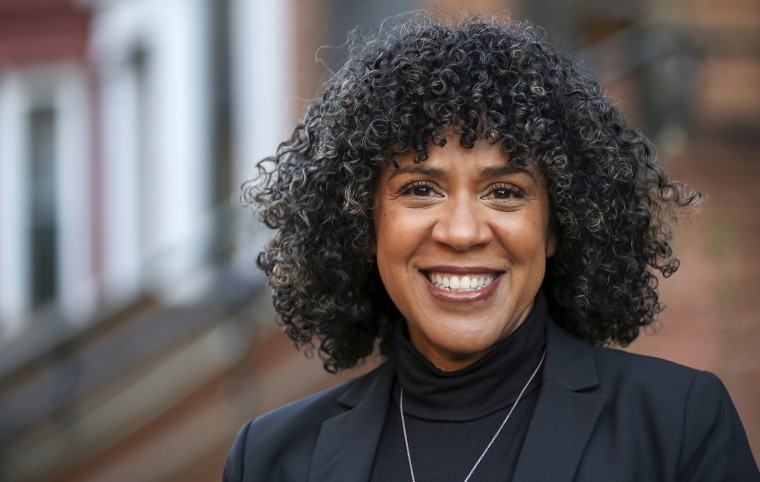
“My story is all too familiar to poor people, single mothers, Black and Brown people and immigrants,” she tweeted alongside the statement. “My run for Mayor is informed by unjust practices even I was not immune to.”
After her response, Morales said her campaign saw one of its biggest fundraising events, taking in nearly $300,000 in small-dollar donations. Morales also has the lowest average donation of any candidate, a sign of grassroots support, according to a Politico analysis.
The mayoral primary will mark the first time New Yorkers will be using ranked choice voting to select their top five candidates in order of preference. If no one wins a majority of votes in the first round, the candidate in last place is eliminated and his or her votes will be redistributed to the candidates those voters ranked second, meaning that candidates who don’t have the most first-choice votes can still win based on second choice votes, something that could potentially give Morales an advantage.
“I am running because I want to position myself to actually be able to help create change,” she said. “It's important to me to stand up for what is right, no matter the cost.”
Follow NBC Latino on Facebook, Twitter and Instagram.
